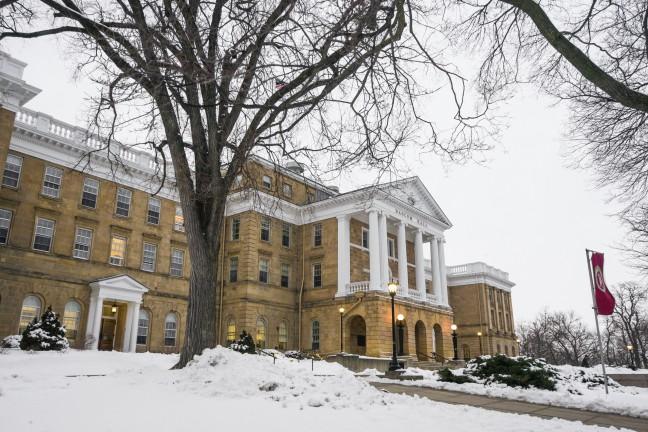The University of Wisconsin System’s Board of Regents is considering increasing tuition in its next biennial budget, which would lift the freeze on tuition that has been in place for undergraduates from Wisconsin since 2013.
UW System president Ray Cross told the Senate Committee on Universities, Technical Colleges, Children and Families the Board of Regents is proposing a tuition increase in the next budget biennium, according to Wisconsin State Journal reporting. This contrasts with the 2019-2021 biennium, when the board passed a budget that did not include any tuition increases.
In August, Republican Congress members cosponsored a bill in the Wisconsin Senate entitled the “Fair Future Tuition Act,” which would give the Board of Regents power to set tuition, but also ensure there is a cap on tuition to protect students from extremely high tuition rates.
The bill also provides what is essentially a tuition freeze for every incoming class of students. The amount a student pays for their first year at an institution will stay the same for all four years of the student’s undergraduate education. The bill sets the tuition cap to the consumer price index increase of the previous year.
When asked about this potential tuition increase, Rep. Dave Murphy, R-Greenville, said while he did not have all the details of Cross’ proposal, he believes the university should eventually take back the tuition-setting function.
“I’d prefer not to see the legislature involved in that forever,” Murphy said.
Murphy also said if the legislature is going to move away from setting tuition, there must be a system in place to guide the process and ensure families will not be faced with soaring tuition costs.
In a statement to the Herald, Sen. André Jacque, R-De Pere, who co-authored the bill, said he feels for students dealing with tuition increases and opposes Cross’ alternative proposal.
“Both while on campus and as an alumnus, I heard and shared the frustrations of students like myself that worked their way through college while dealing with hefty tuition increases,” Jacque said. “Rather than prioritizing items in their budget like other government entities, the Board of Regents frequently used tuition hikes as an escape valve under gubernatorial administrations of both parties, often with opposition only from student regents and occasionally the Wisconsin Superintendent of Public Instruction.”
Badgers United, an advocacy group for the UW supports Murphy’s bill as well. Executive director Amber Schroeder released a statement about the bill’s cap on tuition being based on the previous year’s CPI.
“[It is] a policy approach that is a compromise between the more substantial tuition increases that leaders in higher education would prefer and the continued freeze that families in the state desire,” Schroeder said in the statement.
According to the Wisconsin State Journal, Cross also said despite the fact that the tuition freeze is popular with many families because of its financial benefits, it also makes it more difficult for universities to match inflation. This is because only about a fourth of students would be paying the adjusted tuition.
Additionally, Cross said this plan may discourage non-traditional undergraduate students. Tuition would be raised after four years, so if a student were in school for longer or enrolled as a part time student, they would eventually have to pay increased tuition, according to the Wisconsin State Journal.
Jacque said Cross’ proposal will not impact UW students or their families positively.
“President Cross’ proposal to allow the UW to set tuition unilaterally without any real limitation will do little to provide confidence to students or their families, and is frankly a non-starter with the legislature,” Jacque said.
“There have been no budget recommendations made by the Board of Regents at this time,” said UW System spokesman Mark Pitsch in a statement to The Herald.


